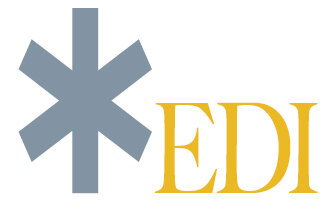Why do commercial pilots train to resist the urge to immediately act against a catastrophic situation as it is unfolding? Because brains are still designed for fairly simple life-threatening situations: jump back if something moves in the grass; duck if something seems to be flying in your direction. Complex life-threatening situations need the executive functions of the brain to engage, and those functions move far more slowly than the base brain functions that trigger reflexes.
Flickr.com: Kristian Byornard
For most complex situations, acting before the executive or cognitive functions are engaged commonly makes things worse. For other specific situations you have to train and practice to override one reflex with another. Think of learning how to halt the reflex to slam on the breaks when you find your car has lost all traction on ice and instead apply a set of practiced responses to turn the wheels in the direction of the slide and gently pump the breaks (unless of course you have an anti-lock brake system).
Avoiding noxious stimuli (steering clear of bad stuff) is what all living things have the ability to do in order to survive. Many of the anxiety spectrum conditions involve the hijacking of this powerful life-saving set of reflexes and applying that avoidance reflex to all manner of things (like food) that are not real threats but have been misclassified as threats in the mind.
Reflexes are hard to override. It requires tons of practice. It feels incredibly “wrong” to override an avoidance reflex.
You need to eat to thrive. Approaching food for those with eating disorders will trigger avoidance reflexes due to that hijack I mentioned above. To overcome that hijack you will have much in common with commercial pilots training to apply methodical approaches rather than “we are all going to die” panicked reactions that inevitably risk everyone’s lives even more.
Can you imagine being in a plane where all the engines have cut out and you reach for a binder instead of, oh say, instantly flicking off the automatic pilot to steer the plane?
Approaching food feels as if you are in a cockpit with all the sirens and warning lights flashing. The challenge is that you do not get to spend hundreds of hours in a simulator practicing swapping out the avoidance reflex with calm and measured approaches. Life is never a simulation.
You need to create your checklist. Have it by the plate of food. It reminds you that you are to pick up the utensils, amass a forkful or spoonful of food, put that food in your mouth, chew (not to the point of utter liquid pulp or mush) and swallow. Then repeat. The checklist reminds you that the avoidance reflex will make you believe you are in grave danger but that you are not. The checklist reminds you that you can take a break, of no more than a few minutes, to ease the panic and then you are to return to finish the food. The checklist has a list of things you must do to ease panic as well. The checklist reminds you to keep trying. Follow the checklist and land your plane safely.
Just keep practicing and commit to multiple practices each day. If one eating session ends in a puddle of sobbing on the floor, you have another go at a meal in the hour. It is important to keep trying and not to put it off until the following day because every situation where you let the avoidance reflex get reinforced will make it harder to replace it the next time.
The checklist approach works not just for all kinds of anxiety spectrum conditions, it works equally well for chronic illnesses such as MS, lupus, ME/CFS, EDS…the difference is that the checklist will have very different items for each situation. The common denominator is to ensure that the checklist reminds you of what best supports your wellbeing itemized as tasks and self-talk.
Getting better does not always mean that you are pursuing a cure. Your condition, your situation and your state may mean that getting better means simply getting better at easing up on yourself, regularly taking the medication that you know works for you, making sure you are resting throughout the day, and etc.
For those of you with busy minds, this is a way to direct the thoughts: checklists are your friends. When you are in the middle of whatever it might be, your ingrained habits and avoidance reflexes will rule the situation in the absence of a practiced plan. To get better when things are getting worse, you have to train and methodically practice your desired behaviours and responses until they are the habits that automatically get applied when things are bad or getting worse.


